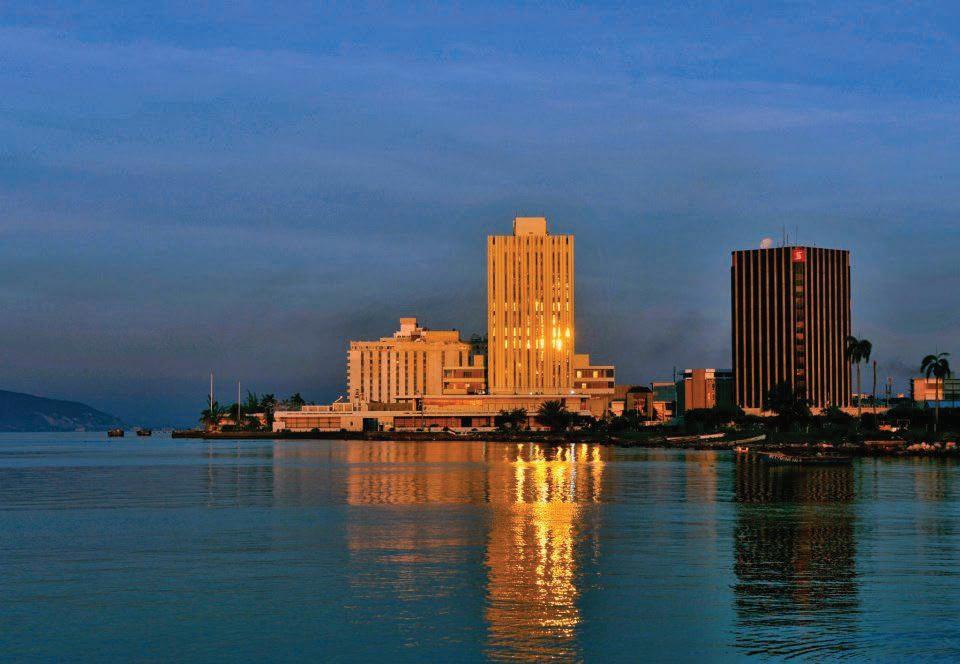






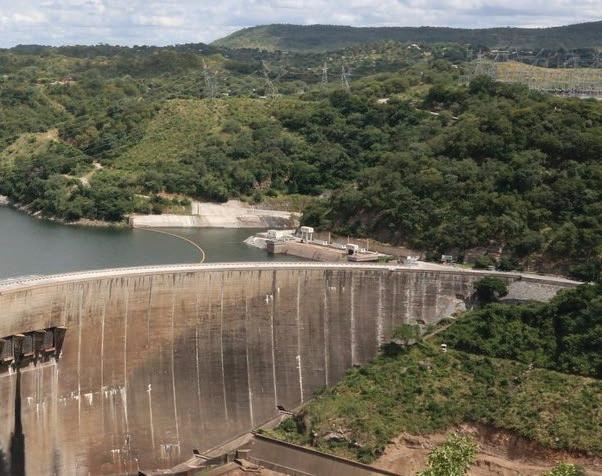
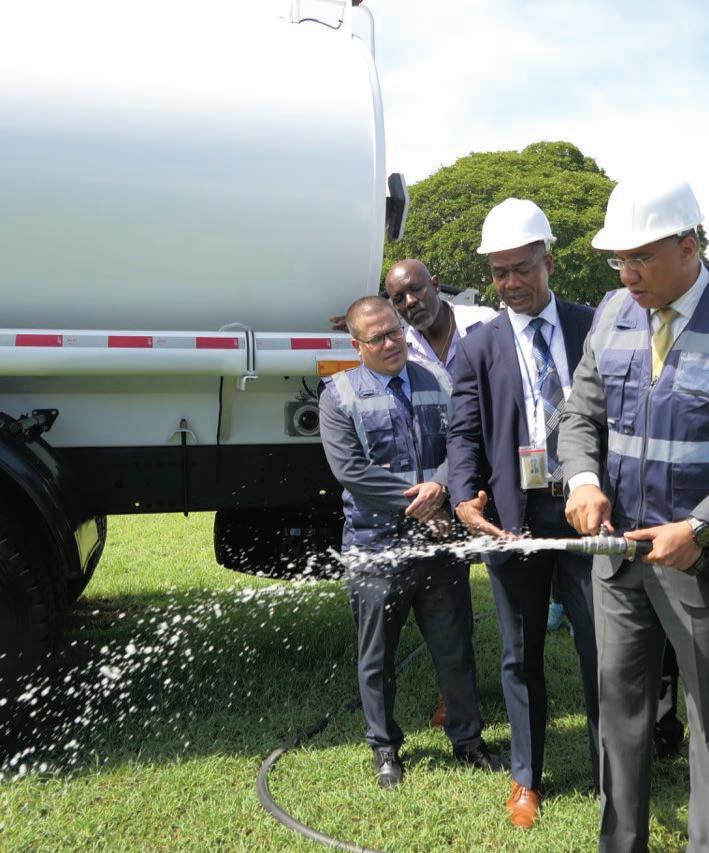
The name Jamaica derives from Xaymaca – a term meaning “land of wood and water” - which was given to the island by its first inhabitants, the Taino. While the face of Jamaica has changed irrevocably since those times, the name at least hints at the potential that the country has to deliver water access to its population. The National Water Comission (NWC) Jamaica is the organization tasked with delivering on this goal.
It is no small task. Most of Jamaica’s water infrastructure was laid down in the 1960s and is need of repair or, in some cases, replacement. Economic difficulties faced by the island nation over the past forty years have only increased the challenge. But as this article will show, the statistics underline that the NWC is getting there. Business Excellence decided to took a closer look at the agency which is fundamental to Jamaica’s wellbeing.
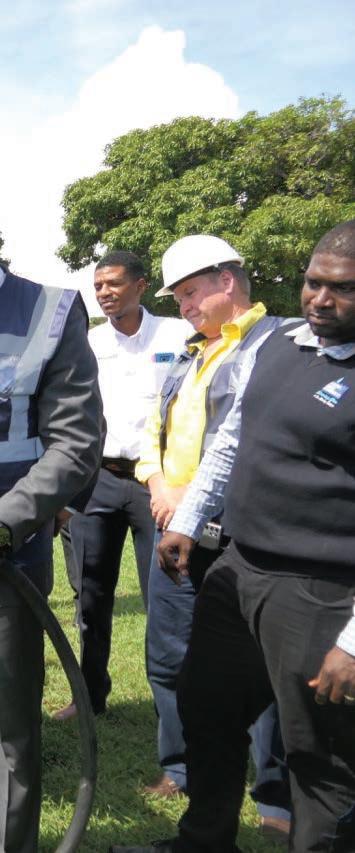
The introduction mentioned how much of Jamaica’s water infrastructure was put in place in the 1960s. This pre-dates NWC, which was formally established in
The NWC supplies nearly 200 million gallons of potable water each day to more than 400,000 registered accountsapproximately 2 million, or around 70% of Jamaica’s total population
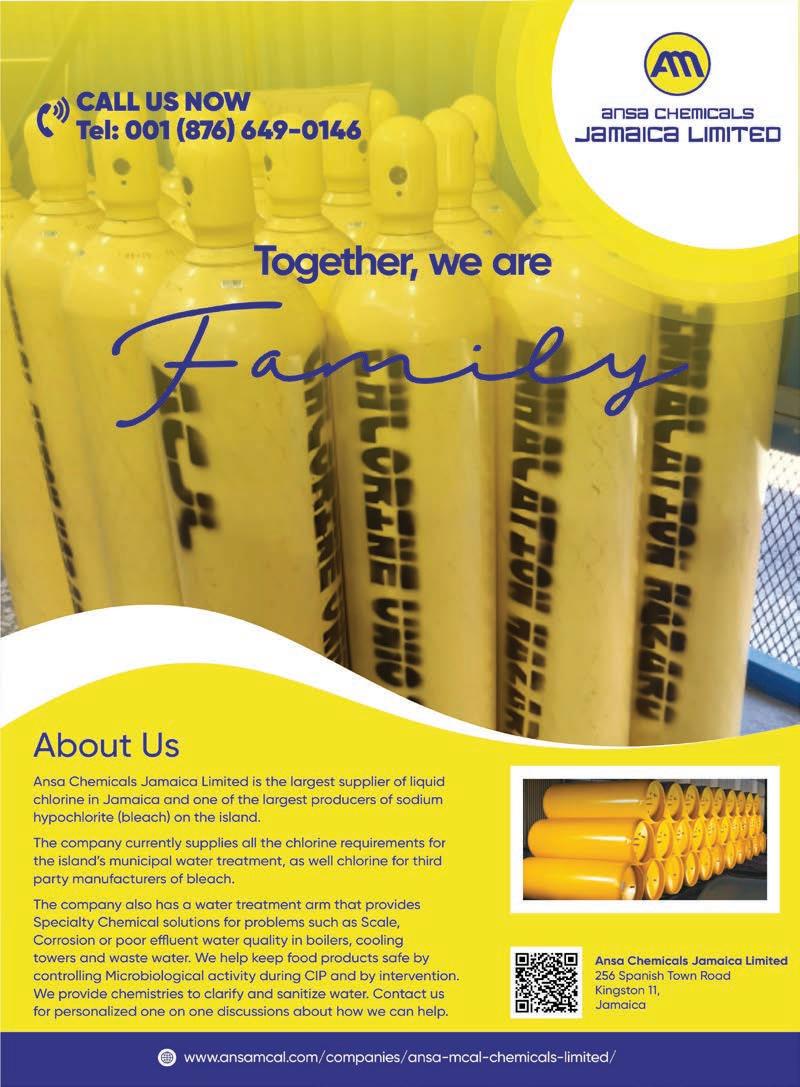
1980 after the merger of the Kingston and St. Andrew Water Commission and the National Water Authority (NWA). The merger led to all of the island’s major water systems being overseen by a single authority for the first time in the country’s history.
Today headed by Mr. Mark Barnett and his team dedicated staff the NWC supplies nearly 200 million gallons of potable water each day to more than 400,000 registered accounts - approximately 2 million, or around 70% of Jamaica’s total
population. The remainder is accounted for several decentralized water sources such as water tanks and public stand pipes. Demand continues to grow, particularly in the industrial sector, which now accounts for over 20% of the country’s GDP. This increases the NWC’s challenge.
The latest phase of addressing the challenge began with the National Water Sector Policy and Implementation Plan, released in 2019. The document forms part

The latest phase of addressing the challenge began with the National Water Sector Policy and Implementation Plan, released in 2019
of the government’s Vision 2030 Jamaica: National Development Plan, a 21-year plan whose main goal is for Jamaica to achieve developed country status by 2030. Access to potable water for all Jamaicans is clearly a central component of this vision.
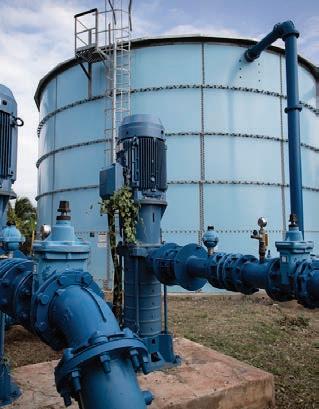

In order to achieve this, the document set out a number of policy measures for the NWC to implement across integrated water resources management, climate change adaption and mitigation, energy efficiency, drought management, and rainwater harvesting. In total, the works for the NWC will require total investments
of approximately $100 billion for water supply and $75 billion for wastewaterboth significant sums.
In a recent interview with Mr. Mark Barnett, President of NWC the first question that was asked is “does Jamaica have enough water?” His answer was yes, Jamaica has enough of fresh water resources to meet both its human and ecological needs. The challenge is where the water is the majority of the population do not necessarily live there which leads to the question of how
Jamaica has enough of fresh water resources to meet both its human and ecological needs
do we move it. “The challenge is the quality of our network and that where the investments needs to be focus on. We need new capacities meaning new treatment facilities and this because the work of improving the efficiency of the network is a long process and not a short term activity”. The goal is improved water distribution and sustained water supply which will remove the current inequalities present by geographic region. This is also the reason NWC has invested in None Revenue Water program which is currently in Kingston and expected to be rolled out throughout the island.
The NWC’s progress is highlighted by some of the landmark projects it has delivered since the Water Sector Policy
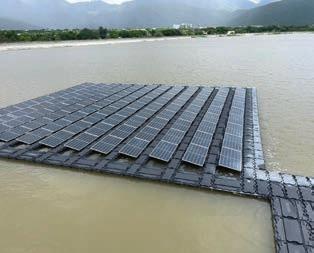
Plan. An example of such can be seen in the official commissioning of the $130-million New Building Water Supply System in St. Elizabeth in November 2022. Works are also ongoing at Kingston and St. Andrew and St. Catherine water infrastructure to dramatically enhance the water efficiency in each location.
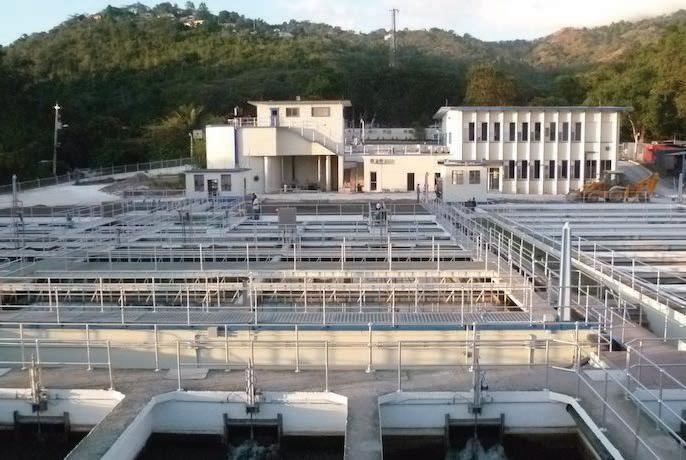

In this context, water efficiency doesn’t just mean that the NWC has been able to dramatically reduce water loss; it also means that it now pumps this water using less energy than before. As the country’s largest consumer of energy, how it generates its energy is of particular relevance. In 2022, it commissioned a 50KW per hour system at the Mona Reservoir and launched a project to install 45MW of clean energy. This will benefit the NWC in excess of $1 billion a year.
In fact, across Jamaica, in urban and rural areas, NWC is investing at pace. Examples can be seen in the Baron Hill to Samuel Prospect pipeline replacement works in Trelawny; the replacement of aged pipelines serving the greater Black River area, and the installation of several secondary storage tanks to improve reliability and reduce energy consumption at Frazer Hill in St Thomas, Liberty in St Ann, Westgate in Montego Bay, and Clarendon.
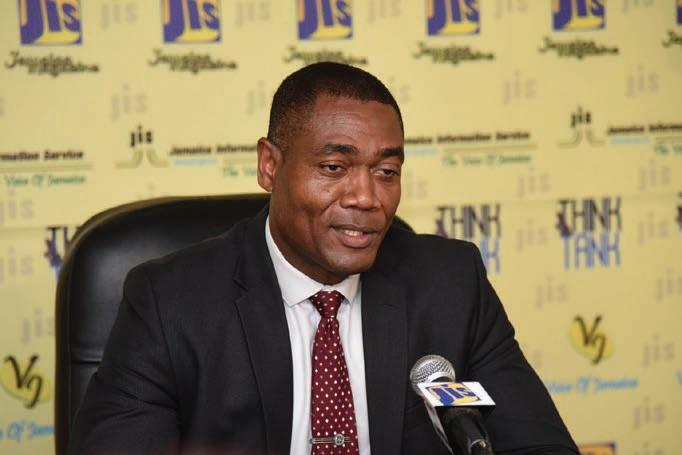
Despite the huge capital outlays, as of 2023, NWC is highly profitable, showing net year-to-date profit of nearly $3 billion as of January 2023








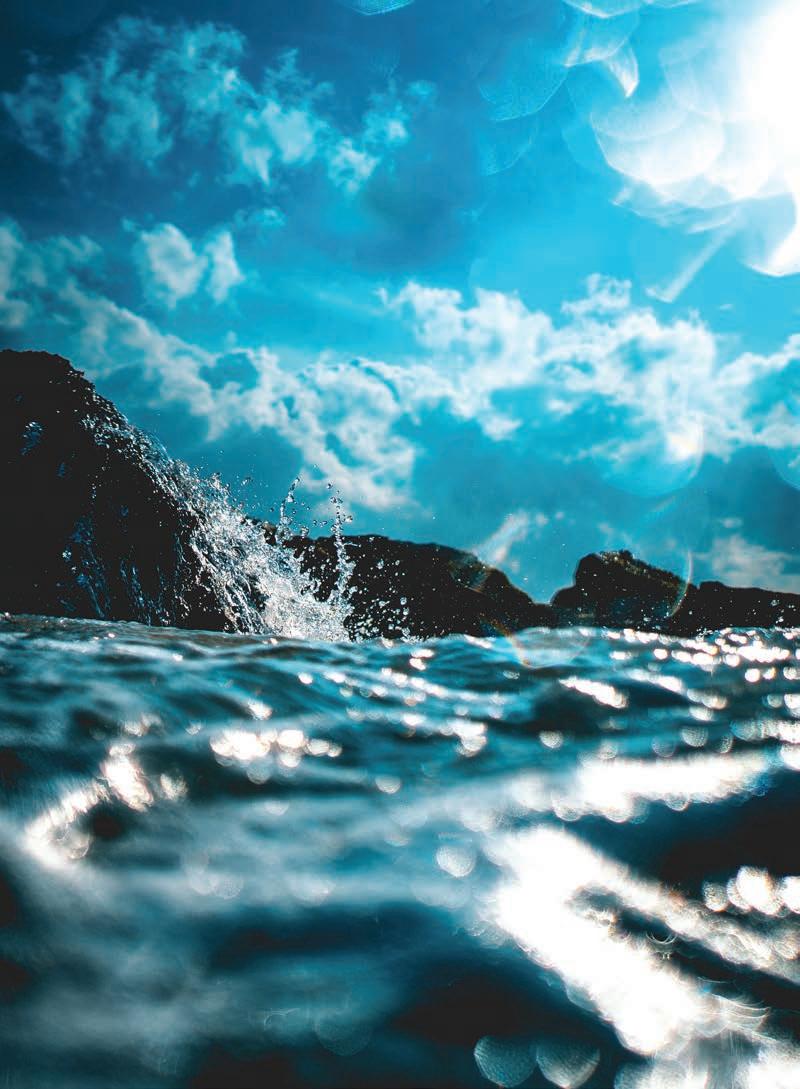
Despite the huge capital outlays, as of 2023, NWC is highly profitable, showing net year-to-date profit of nearly $3 billion as of January 2023. Its mandate means that all of this profit will find its way back into investments in the company infrastructure, ultimately leading to knock-on benefits for its citizen stakeholders. It has also earmarked investments of around $7 billion for 2023, which would put it ahead of schedule for its end of the 2030 National Strategic Plan.








NWC’s mission is made possible not only by a series of internal and external stakeholders. The fact that the company has less than 500 employees is a testament to how much it outsources key tasks to





important partners and suppliers. These will become even more key as it ramps up its investments and operations in the years ahead.
The list includes a range of equipment providers, among which are Isratech Waterowrks, Tyres-R-US, Matrix Tech Limited, SCL (Jamaica) Limited, Appliance Traders Limited, LS Duhaney & Company Limited, and Champion Industrial Equipment & Supplies Limited. Gulfstream Petroleum has been responsible for ensuring that NWC meets its considerable energy needs.
Elsewhere, the company sources essential raw materials and chemicals from companies like Ansa Coating Jamaica Limited, Industrial Chemical Company Limited, and Paramount Trading Limited. Its growing technology requirements are

catered for by Royale Computers and Accessories Limited. Incotek Company Limited assists it in water treatment, and Quality Plus Contracting Co. Limited is its chosen construction partner.
Jamaica’s Prime Minister, the Most Hon. Andrew Holness perhaps best summarized the progress of NWC when he recently referred to it as: “stronger more robust utility, able to better carry out its mandate.” This can be measured across a range of metrics, both operational and financial. In some parts of Jamaica, the quantity of water wasted has been cut by over half. The intention is to bring this to a level near zero before 2030.
This kind of efficiency attracts positive attention. Privatization of the NWC has
By designing all aspects of the machine, from electronics to drive train and hydraulics from beginning to end, all componentry meshes flawlessly. This is not the easiest way, but it’s the best way. It guarantees you get a machine that has built in quality and reliability. This is why Komatsu gets the toughest jobs, and makes them look easy.
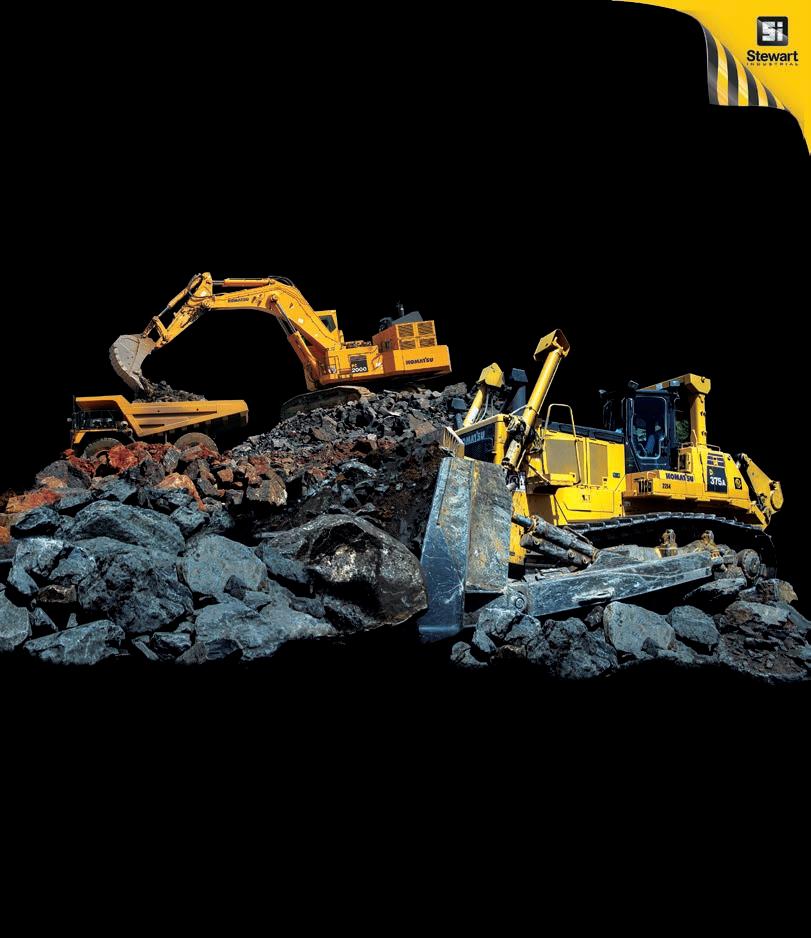
been a historical talking point in Jamaica, coming and going under different governments and internal company management teams. Its role as a driver of Jamaica’s movement to become a developed country by 2030 may make this even more of a possibility than in the past. As potential investors look on with admiration, NWC’s stock is certainly on the rise.
